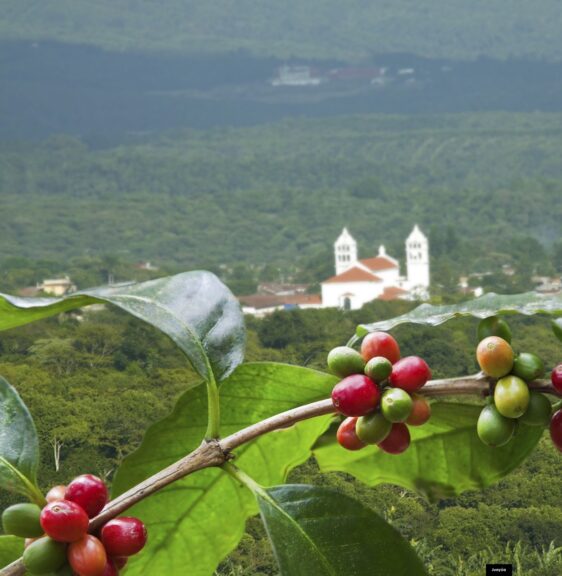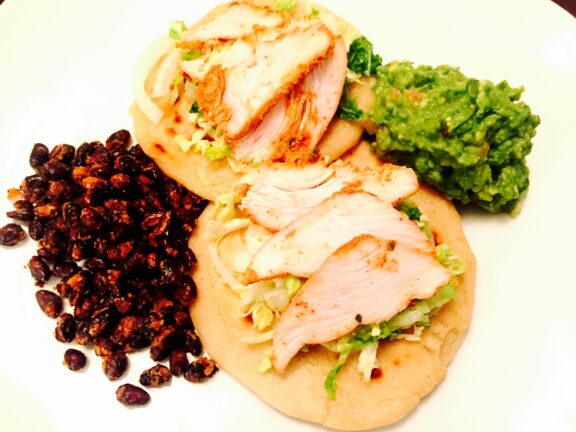El Salvador? Very few people think of including this country in their travel plan. Can we even locate this midge of 21,000 km² on the world map? Bordered by Guatemala to the west and Honduras to the north, El Salvador largely hugs the shores of the Pacific. A blessing for surfers, who are coming here in increasing numbers, attracted by the excellent beach breaks and the relative lack of competition. Head for Playa El Tunco, HQ of revelers, or the little-known spots hemming the almost uninterrupted ribbon of gray-brown sand beaches and coconut palms.
The natural spaces of El Salvador are certainly reduced to a bare minimum in this densely populated country, but they compensate in beauty and by the relative absence of visitors. On this small space, pile up no less than 22 volcanoes, some active, others containing impressive crater lakes. The cloud forest of the parks of Montecristo and El Imposible, the beneficios (farms) of coffee, the vast fields of sugar cane draw a very pretty backdrop, against which stand out, from time to time, some colonial cities and those, eaten away by time, of the ancient Mayans.
1. Surfing is serious business in El Salvador

El Salvador is getting more recognition among the international surf scene and has been visited by a small group of intrepid surf enthusiasts in the last few decades. Due to El Salvador’s bad reputation, the coastline remained largely unvisited. Now that crime has been dropping and much has been invested in tourism, world class surf spots such as El Tunco and Cuco are seeing more visitors than before. The coastline is home to many surf spots with perfect waves and warm water, so you don’t need to bring your wetsuit! The beaches aren’t too crowded and one can relax or explore the local nightlife when you’re not busy surfing. In the last few years, El Salvador has also been hosting many prestigious international surf events.
2. Coffee From El Salvador Is World Class

Once, in the seventies, El Salvador used to be the fourth-largest coffee exporter in the whole world, a position which has now been taken over. The farmland, which used to be owned by a small elite, has been divided now among more than 20.000 families. El Salvador is known to produce top notch coffee and when you’re visiting you should try the coffee and definitely visit some of the coffee farms.
3. El Salvador Is The Smallest Country In Central America
El Salvador covers around 21,000 square kilometers, making it smaller than countries such as Belgium or The Netherlands, but with over 6.5 million people it is the most densely populated country in Central America!
4. El Salvador Is The First Country To Use Bitcoin As A Legal Tender
In October 2021, President Nayib Bukele, announced at the Bitcoin Conference that El Salvador would be using Bitcoin as a local tender. Citizens can download the Chivo wallet and each get 30 usd worth of bitcoin. It can be used all over El Salvador and you can also find Bitcoin atms in many places.
5. President Bukele Has The Highest Approval Rating Among World Leaders

In the last polls (December, 2022), President Nayib Bukele had an almost 90 percent (87.8 %) approval rate, making him the most popular head of state in the world. Despite attempts from international media and governments to discredit President Bukele, he is the most popular president in El Salvador’s history as security improved drastically since he took over power. Violent crime and homicides have dropped significantly over the last few years.
6. El Salvador Is The Only Country In Central America Without a Caribbean Coastline
What El Salvador lacks in white sandy Caribbean beaches, it makes up with a long coastline among the Pacific Ocean with many great surf spots, attracting professional surfers from all over the world.
7. El Salvador Is Home To Many Volcanoes
There are 22 known active and inactive volcanoes in El Salvador. Several of these volcanoes can be visited, such as the Santa Ana volcano, which is a popular day tour in El Salvador. In the national flag of El Salvador there are even five volcanoes rising out of the ocean, which stand for the the united provinces of Central America. The blue stripes on the flag symbolize the ocean and the sky and the white strip represents peace.
8. Besides Bitcoin, El Salvador’s Currency Is The US Dollar
Since 2001 El Salvador has been using the US Dollar, making it very easy for foreigners, especially US citizens to travel to El Salvador.
9. Most Nationalities Don’t Need A Visa For El Salvador
Many nationalities are exempt for a visa and can stay in El Salvador up to 90 days as long as your passport is valid for at least six months. Some nationalities are required to buy a tourist pass for 12 usd upon arrival, but not all.
10. Crime Rates Have Dropped Significantly In El Salvador
Over the last few years, the government has been cracking down on the country’s gangs, with the MS13 and Barrio 18, being the most notorious. Homicides and violent crime have been reduced tremendously. El Salvador finally is being safe enough for its own citizens and tourists to freely move around in most parts of the country now, although one should remain cautious of course.
11. El Salvador Has Invested Heavily Into The Tourism Industry
The first thing you’ll see when you arrive in El Salvador by air is the brand new airport at San Salvador. From there several roads connect to major tourist spots near the coast as well as the capital. Hundreds of millions of USD have also been invested in projects such as the coastline in which roads are being built and sites are restored. The country is also training and supporting people who want to work in the tourism industry.
12. Pupusa Is The Country’s National Food And Is A True Taste Bomb

A pupusa is a tortilla with a baked filling. It is the national dish of El Salvador and is also common in other Central American countries. It consists of cornmeal, the filling usually consists of beans, cheese or a mixture of both. Variants can also be filled with fish, chicken, avocado, sausage or cheese with pork rind. Pupusas are usually served with curtido, a pickled slaw with chili, and a tomato sauce, and are typically eaten with your fingers.
A national holiday has been dedicated to the national dish of El Salvador since 2005. The “Día Nacional de las Pupusas” takes place on the second Sunday in November each year. The Ministry of Culture holds numerous events across the country on this day to preserve the custom and culture and to promote exports. The activities even go so far that nationwide competitions are held.
In November 2012, the largest pupusa to date, measuring 4.25 meters in diameter, was made by 30 people in San Salvador and entered in the Guinness Book of Records. 150 kilograms of cornmeal, 40 kilograms of cheese, 22 kilograms of pork rind and 22 kilograms of beans were used for the preparation.







